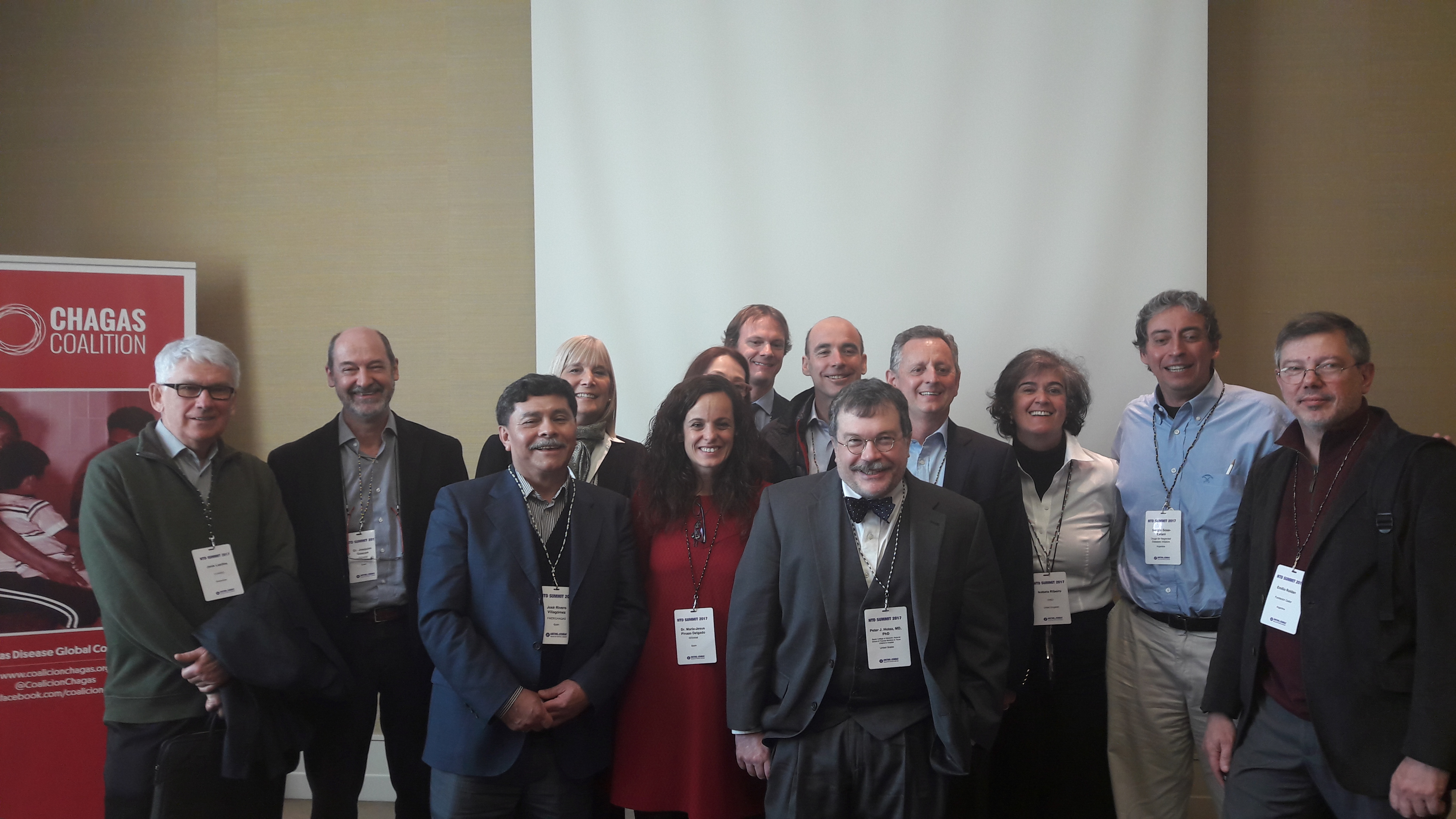The Coalition’s workshop provided an update of the challenges of access to diagnosis and treatment in the framework of the NTDs Summit around the 5th anniversary of the London Declaration.
The Global Chagas Coalition held one of the main workshops in the summit of Uniting to Combat NTDs in Geneva, 20-23 April. The Coalition participated as vice-chair of the Specific Disease Working Group of Uniting to Combat, the alliance which different stakeholders, donors and organizations decided to create in 2012 to accelerate the roadmap of WHO to control, eliminate and eradicate 10 among the 18 neglected tropical diseases.
In the 4th report of Uniting to Combat (where they measure the progress of global initiatives in the 10 diseases) as well as in the last report of WHO about the NTDs launched previously to the summit in the Global WHO Partnership’s meeting of NTD, it is highlighted the need of an scaling-up of the fight against Chagas disease. Among the different responses to that gap, The Global Coalition invited high level experts and stakeholders with the aim of strengthening and consolidating the presence of Chagas community in the world of NTDs. Several members of the Coalition participated in the workshop, as DNDi, Mundo Sano, Sabine Istitute or ISGlobal, among others, as well as WHO or the International Federation of Patients, Findechagas and Swiss Association of patients, Aswisschagas.
During the opening session in April 20, following a meeting of the Coalition’s board, there was a discussion moderated by the ISGlobal’s Analysis and Development director, Rafael Vilsanajuan and the participation of Silvia Gold, president of Mundo Sano Foundation, Bernard Pécoul, DNDi director, and the researcher Peter Hotez, president of Sabin Vaccine Institute and Baylor College of Medicine in Texas Children’s Hospital. They took the pulse of the momentum in terms of potentials and future perspective to scaling-up access to diagnosis and treatment.
There are some good news which lead us to wait for a new time in the fight against Chagas. The research of DNDi in improved treatments regime; the paediatric dosis of Benznidazole developed by Mundo Sano and available for the affected countries, as well as the research for a future vaccine are some examples. Miss Gold commented on the possibility of an increase in the access to the treatments if the US FDA finally approves the registration of benznidazole.
Pere Albajar, Chagas’ referent in the NTDs Department at WHO, presented the current situation and perspectives for the disease’s control according to the WHO roadmap, and its concrete objectives scheduled for 2020 and 2030.
There were also several presentations of a range of models of care as well as initiative to overcome the barriers challenges, as the one shared by Mauricio Vera, representing the Colombian Ministry of Health and Carolina Batista, from DNDi. Examples of care in Bolivia were presented by Maria Jesús Pinazo, from ISGlobal-Hospital Clínic and Ana Zaratiegui, from MSF. Also, Marcelo Abril, executive director of Mundo Sano shared the successful experience in La Plata, Argentina.
From the non endemic countries perspective, there were several presentations by Joaquin Gascon (ISGlobal-Hospital Clínic), Yves Jackson (Hôpiteaux Universitaires de Geneve) and Andrea Angheben (Centro Per Le Malattie Tropicali, CMT, Negrar, Verona, Italy) and Colyn Frosyth, from DNDi and The Medical Center of excellence for Chagas disease in the the Olive View-UCLA, who shared their experiences and challenges of care and research.
The challenges in terms of Research and Development of vaccines and new tool of diagnosis and treatments were presented by Sergio Sosa Estani, DNDi, Maria Jesús Pinazo, ISGlobal, Albert Picado, FIND, and Maria Elenea Botazzi, Baylor College. This last session was followed by a in-depth discussion and analysis where different experts shared their lessons learnt after both successful and failure cases. This session showed the need of gatherings like these to exchange the different experiences and analysis in order to improve our work under the Coalition’s umbrella.
Each of the 10 NTDs working groups participating in the summit was requested to highlight one of the prioritized needs to improve the progress in the roadmap. These priorities were included in a final slide as a conclusion of the summit. The Coalition provided this appeal:
"It is urgent to increase access to Chagas treatment, strong leadership from affected countries is needed. Joing efforts among all stakeholers to integrate care of Chagas disease in national health systems will make it possible”.
The NTDs Summit, with a numerous and unprecedented attendance of the NTDs community, concluded with the “Geneva Commitment” of all stakeholders to support and strength the work to achieve the goals agreed in the London Declaration, five years ago.
All Power Point slides and presentations will be soon available for download in this page.


